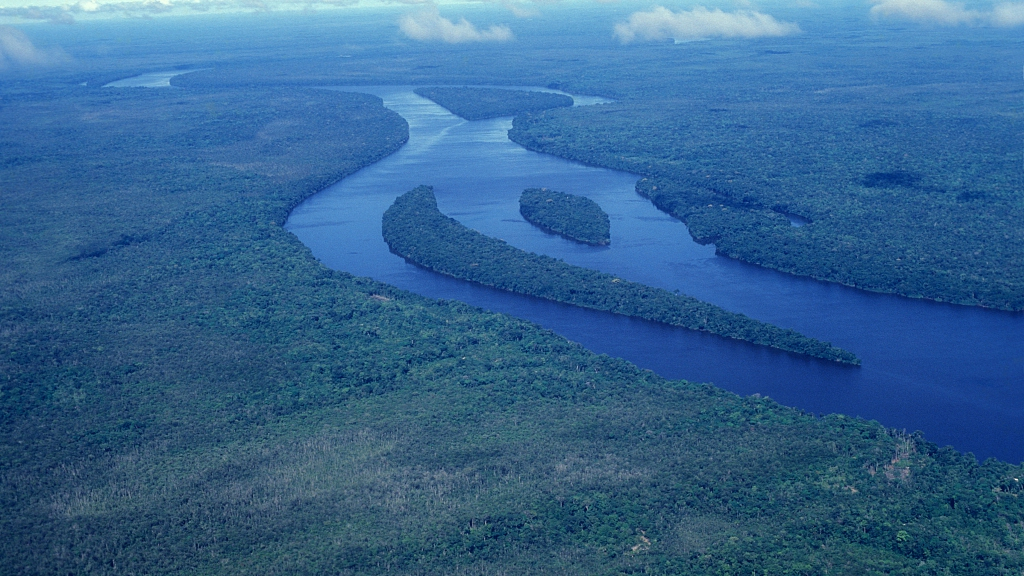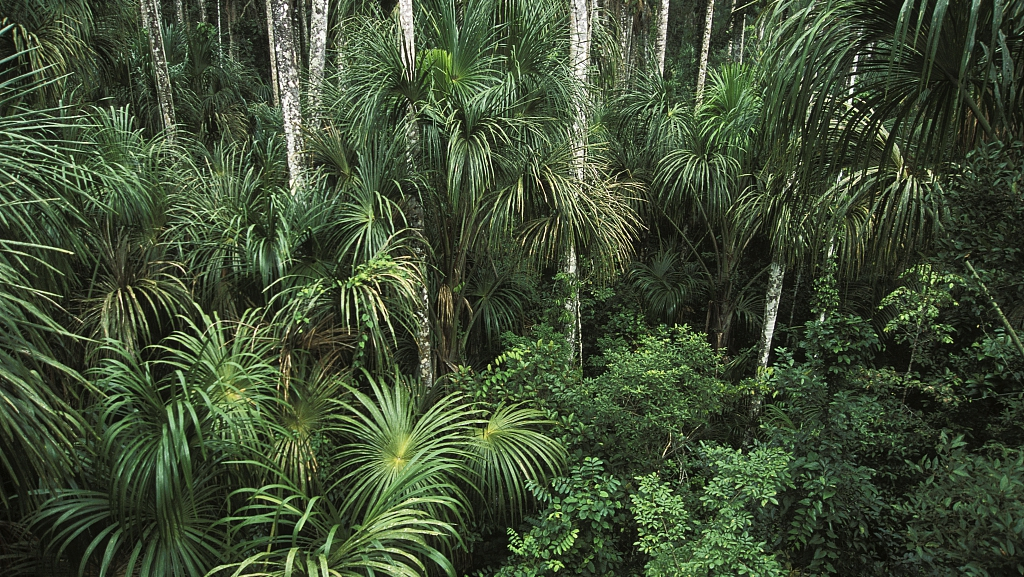

A record number of fires raging in the Amazon, the world's largest rainforest, have sparked worldwide outcry over such a huge deforestation scale.
According to Europe's Copernicus Atmosphere Monitoring Service, Brazil's blazes have already released 200 million tons of CO2 into the atmosphere.
Scientists, however, have raised a bigger concern: if this critical buffer against global warming is compromised, what would happen next?

A record number of fires are raging in the Amazon. /VCG Photo
The Amazon, often referred to as the "lungs of the planet," is crucial in the global efforts to mitigate climate change.
It absorbs about a quarter of the world's carbon emissions while providing about 20 percent of the world's oxygen. On the other hand, deforestation there will undermine the ability to reduce the plant-warming greenhouse gases and accelerate global warming.

The Amazon absorbs huge amounts of carbon emissions. /VCG Photo
The Amazon acts as a giant natural air conditioner, because when water evaporates from tree leaves, it removes heat from the atmosphere. Damage to the Amazon could reduce its powerful cooling effects. One analysis found that protected forests in the Brazilian state of Mato Grosso were 3 degrees Celsius lower than surrounding pastures and farms.
In addition, through regulating temperature and humidity, the Amazon helps stabilize global climate, while changes in the Amazon rainfall could disrupt weather patterns around the world. According to one modeling study, if the Amazon were completely deforested, the snowpack in the Sierra Nevada mountains — a crucial water reservoir for California — would be diminished by half.

The Amazon cools the air down through evaporation. /VCG Photo
Meanwhile, scientists fear that global warming, which the Amazon helps mitigate, will have devastating consequences on the rainforest, by speeding up the pace of forest loss and eventually downgrading it to a savanna. The Amazon is already changing.
A study by the UN's Intergovernmental Panel on Climate Change shows that the Amazon's dry season now lasts three weeks longer than it did 30 years ago, and the likely culprit is global warming.

The Amazon regulates and stabilizes global climate. /VCG Photo
A healthy Amazon is one of our planet's best defenses in the face of climate change, and when it comes to global temperature, a small increase could make huge differences.
For more:
Amazon wildfire 'ignites' social media, but why should we care?
The Amazon fires: How can wet rain forests burn?
When Amazon burns, animals suffer
Exotic species in the Amazon rain forest – mammals
(Cover image via VCG)
(If you want to contribute and have specific expertise, please contact us at nature@cgtn.com.)

Copyright © 2018 CGTN. Beijing ICP prepared NO.16065310-3
Copyright © 2018 CGTN. Beijing ICP prepared NO.16065310-3